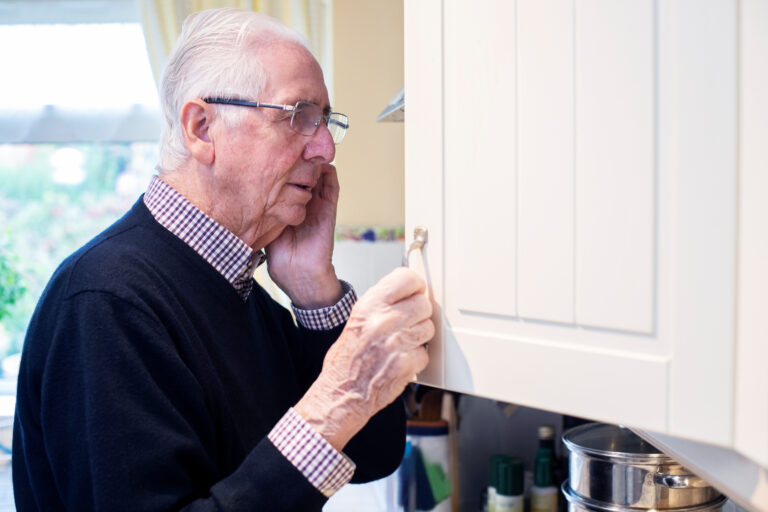Palliative Care at Home: What are the Benefits?
If you or your loved one has a chronic illness, your family is likely facing a number of challenges. There’s the physical toll of the symptoms of a life-limiting disease, but also numerous emotional and psychological effects as you adjust to the “new normal.” In short, you’re grappling with an illness that can impact every area of your life.
Fortunately, there are a number of resources available to help you and your loved ones cope with a life-limiting disease. One important option to consider is palliative care, a specialized form of care that focuses on symptom management and improved quality of life for those managing chronic conditions.
Read on to learn more about what palliative care includes, the benefits of receiving palliative care at home, who’s eligible for palliative care, and the many ways this supportive resource may help your family.
Are you or a loved one living with a chronic or terminal illness?
The Sage Family of Companies is here to help.
Are you or a loved one living with achronic or terminal illness?
The Sage Family of Companies is here to help.
What Is Palliative Care?
Palliative care is a specialized type of care for individuals living with a life-limiting illness. The goal of palliative care is to provide relief from pain and other symptoms, and enhance the quality of life for patients and their families. You may receive palliative care at home or in a facility.
When you receive palliative care, you’ll continue the treatments and medications meant to slow or cure your disease. Along with these treatments, your palliative care team — which may include nurses, doctors, home health aides, specialists, counselors, and faith leaders — will provide emotional, psychological, social, and spiritual support as you cope with your illness.
You can receive palliative care at any stage of disease, though it’s often recommended to start it at the time of diagnosis.
What are the Benefits of Receiving Palliative Care at Home?
You or your loved one can receive palliative care at a number of locations, including hospitals, nursing homes, outpatient clinics, and at home. There are many advantages to receiving palliative care from the comfort of your own home, including being in your own familiar space with your own belongings and not having to move to or commute to a facility.
Members of your palliative care team will come to you when it’s convenient for you, based on your schedule. In-home care may also make it easier and more comfortable for visitors who wish to spend time with you or your loved one at home.
Depending on you or your loved one’s disease and physical condition, you may need extra support and equipment to manage an illness at home. For example, if mobility is limited, you’ll need to ensure easy access to a bathroom and a safe way to leave your home. Grab bars, a shower chair, handrails, and safety grips may need to be installed to ensure safety.
Deciding on the right place to receive palliative care is an individual choice for each family. Speak with your loved ones about their wishes to see if palliative care at home might be the right choice.
Palliative Care at Home: What to Expect
Your palliative care team can assist with various aspects of disease management. They can also provide emotional and spiritual support. Below are the ways palliative care at home can help, if you or a loved one is living with a chronic illness.
Planning and coordination of care
The first stage of palliative care is coming up with a treatment plan with your palliative care team. While every person’s plan will look different, some things you may discuss with your care team include:
- Your symptoms
- Your current medications and treatments
- How your illness is affecting your everyday life and your family’s life
- How involved your loved ones are in your care
- The expected progression of your disease
- Where you’d like to receive palliative care
Together with your loved ones, you and your doctor will decide whether you wish to receive palliative care at home or at a healthcare facility. You’ll also discuss strategies to prevent and ease pain and other symptoms, and the kinds of support you’ll need to improve your quality of life. Your palliative care team will also work closely with your primary care doctor to ensure proper coordination of care.
Symptom management
Symptom management is one of the key aspects of palliative care. Your palliative care team will work with you to monitor and relieve your disease symptoms, and any side effects of the medications you’re taking. As part of your palliative treatment plan, you may receive referrals for specialists in pain management, psychology, or integrative medicine.
Nutrition services and mental health counseling are available. If desired, you may also partake in complementary medicine and techniques, such as meditation, breathing exercises, Reiki, massage, and healing touch to help improve your symptoms and your overall well-being.

Caregiving assistance
Caring for a loved one with a chronic illness can sometimes feel overwhelming. Palliative care can help ease the burden of caregiving by stepping in and assisting with various aspects of care.
For example, members of your palliative care team can help with everyday tasks like bathing, grooming, dressing, and eating, as well as medical needs like wound dressing and medication management.
Counseling and access to support groups are also available for family members to help them cope with their loved one’s illness.
Are you or a loved one living with a chronic or terminal illness?
The Sage Family of Companies is here to help.
Are you or a loved one living with achronic or terminal illness?
The Sage Family of Companies is here to help.
Emotional and spiritual support
Palliative treatment focuses on care of the whole self, so resources, including counseling, will be available to you to address the mental, emotional, and social stresses of having a life-limiting illness.
If religion or spirituality play a role in your life, a chaplain or other spiritual adviser can be made available to discuss your needs or concerns.
Who Is Palliative Care For?
Anyone living with a serious illness is eligible for palliative care, regardless of age or stage of disease.
While it’s not an exhaustive list, here are some of the common diseases for which people receive palliative care:
- Cancer
- Alzheimer’s disease or dementia
- Heart disease
- Stroke
- Kidney failure
- Parkinson’s disease
- Cystic fibrosis
- Chronic obstructive pulmonary disease (COPD)
- Lung disease
- End-stage liver disease
- Multiple sclerosis
- Amyotrophic lateral sclerosis (ALS)
Hospice and Palliative Care: What’s the Difference?
Hospice and palliative care often get confused, but they are not the same. The main difference is that with palliative care, you continue to receive treatment intended to stop or cure your disease, in conjunction with treatment meant to improve your quality of life.
Hospice care, sometimes called end-of-life care, is a form of care where the goal of treatment switches completely to comfort as you prepare for the end of life. When you enroll in hospice care, your doctor will stop administering curative treatment.
Anyone can enroll in palliative care at any stage of their disease, but hospice care is reserved for those whose doctor estimates they have six months or less to live.
FAQ for Home Palliative Care
Here are answers to some of the most frequently asked questions about palliative care at home.
Can You Live Alone for Palliative Care?
You can receive palliative care if you live alone. However, depending on the severity of your disease, it may be easier to move into a healthcare facility. Your doctor will discuss the pros and cons of each option, and help you decide the best location to receive palliative care.
How Do You Know When it’s Time for Palliative Care?
Doctors often recommend palliative care at the time of diagnosis. However, you can enroll in palliative care at any stage of a disease. If you’re feeling stressed or overwhelmed from the symptoms of your illness or the impact it’s having on your life, palliative care can be a good choice.
How Long Will I Live on Palliative Care?
People can remain on palliative care for weeks, months, or even years. It’s even possible to get better and no longer need palliative care.
Summary
Living with a chronic illness can take a toll on your entire family, but palliative care can help ease the burden on both you and your loved ones. Palliative care at home can be an excellent way to focus on your physical, mental, emotional, and spiritual health while you’re living with a life-limiting illness.
The Sage Family of Companies is here to answer any questions you may have.






